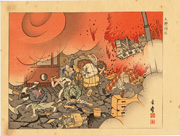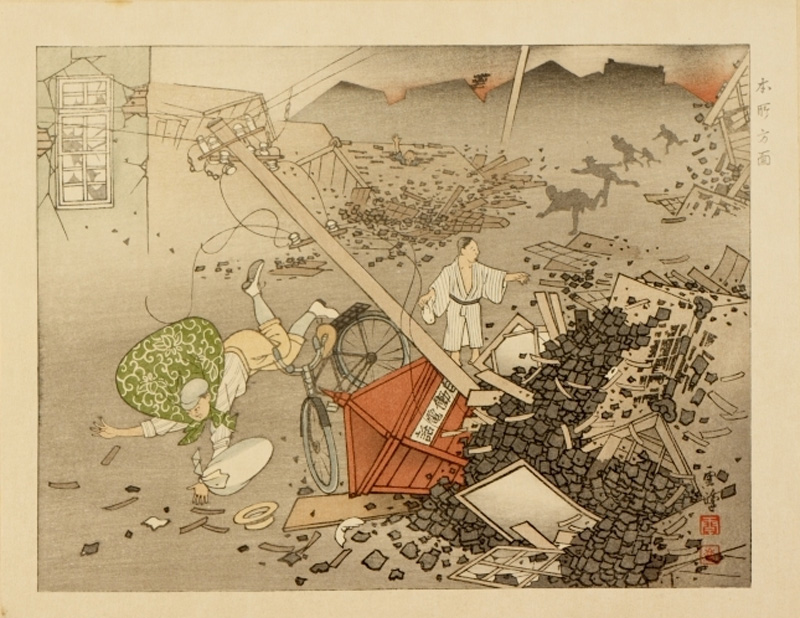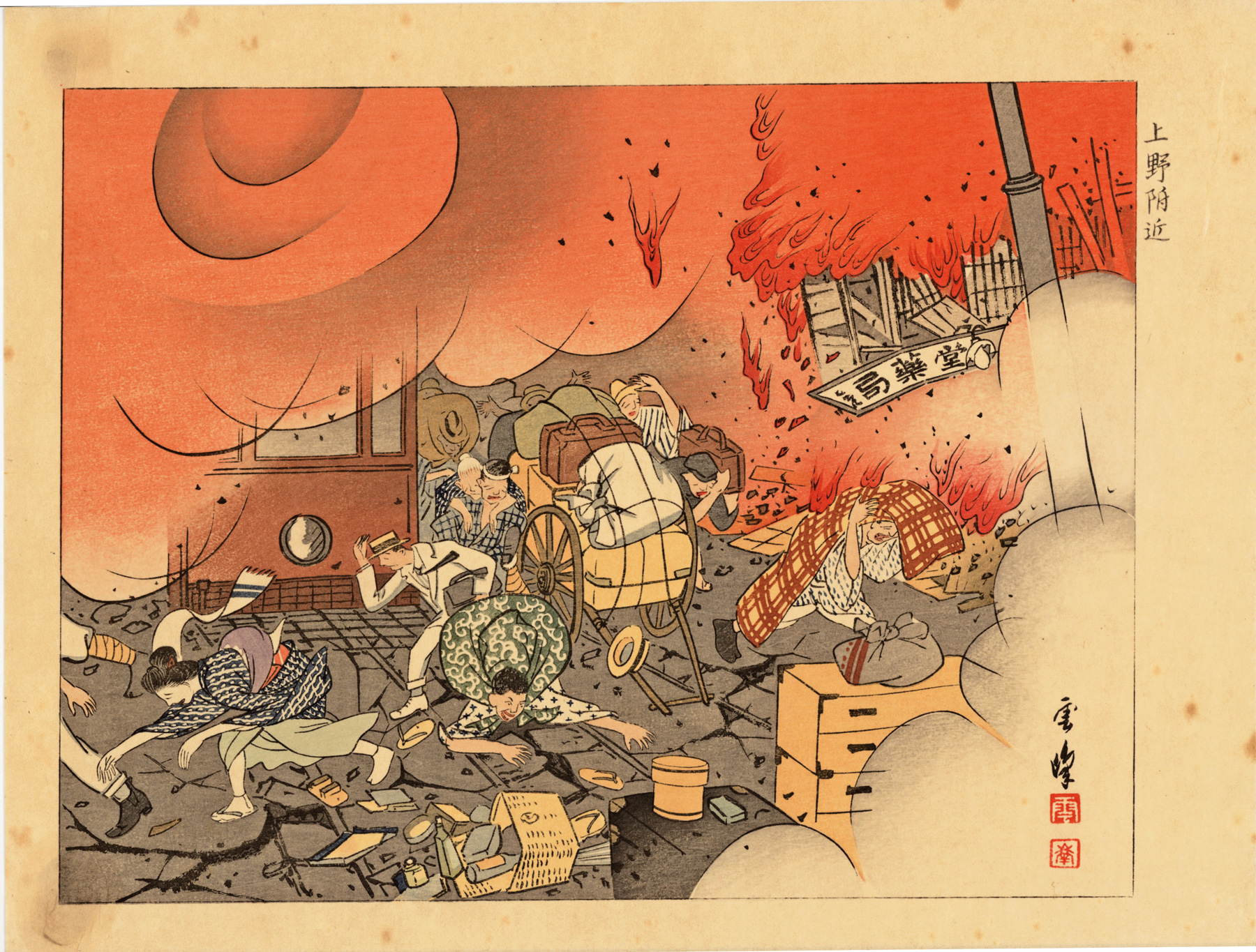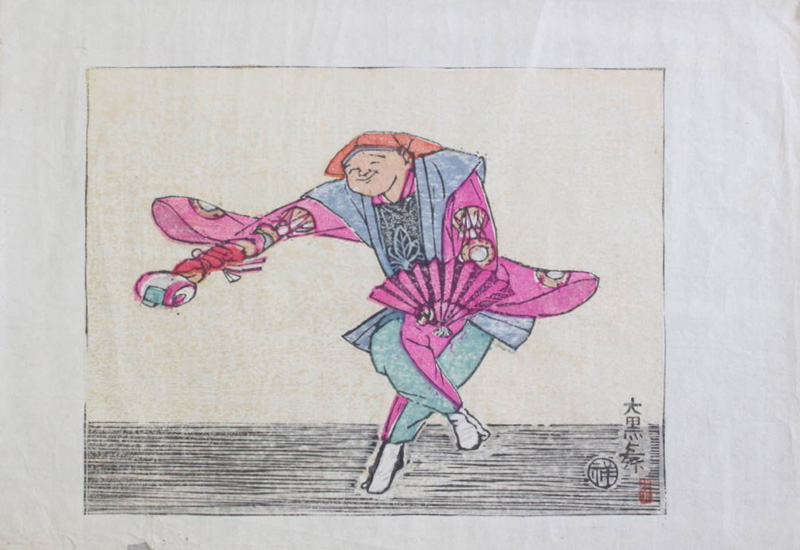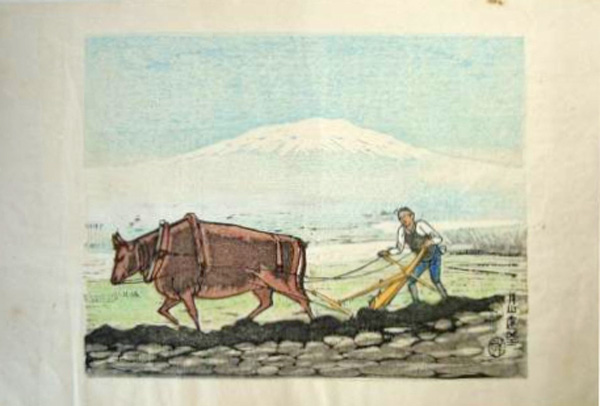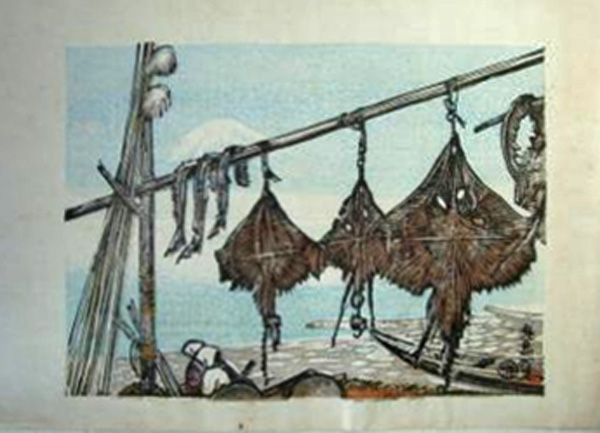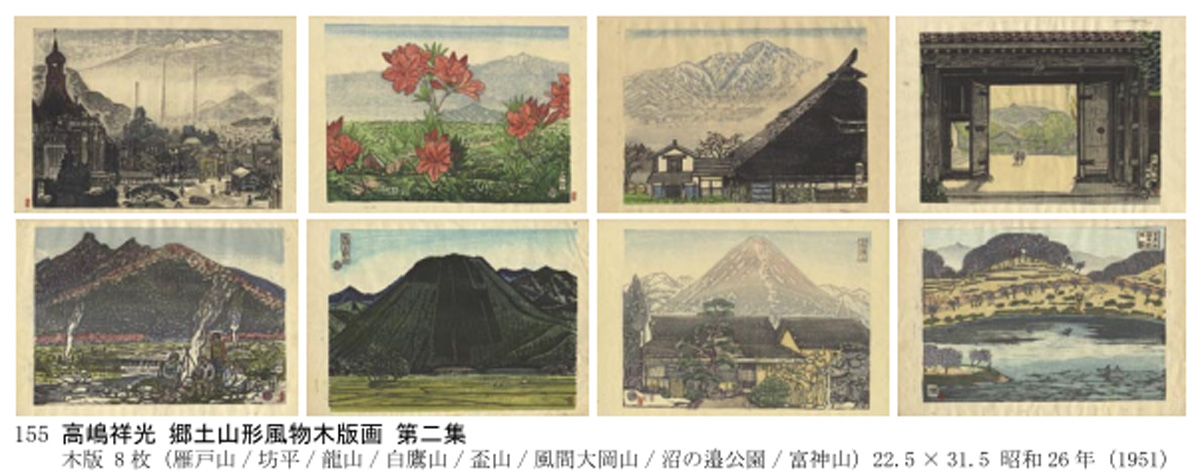Prints in Collection
Biographical Data
Biography
Takashima Unpō 高島雲峰* (1894-1987) [Takashima is also seen written using the characters 高嶋 and Unpō is also seen written using the characters 雲峯.]
* (たかしま・うんぽう)
Sources: website of the Yamagata Prefectural Government https://www.pref.yamagata.jp/ou/kikakushinko/020073/bunkasinko/11-20.html#029 and http://www.hanga-do.com/img/Hangadomeiran112.pdf
Note: The below biographical information is taken from the above referenced sources and is subject to my errors of translation.
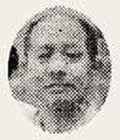 | Takashima Unpō was perhaps better known by the name Takashima Yoshimitsu 高島祥光, which is often found on his nihonga paintings. He is closely associated with his home prefecture of Yamagata where he was active for many years in promoting the arts and culture, especially Japanese-style painting. Born in May 1894 in present day Tateoka, Murayama in Yamagata Prefecture, his birth name was Kōzō 孝蔵. He later used the names Takashima Yoshimitsu 高島祥光 and Takashima Unpō 高島雲峰. |
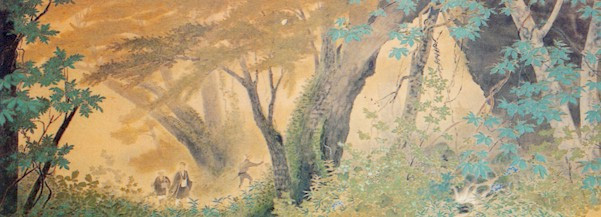
芭蕉 山刀伐峠越の図 高嶋祥光
Bashō travelling over Natagiri Pass by Takashima Yoshimitsu, date unknown
color on silk
In 1912 Takashima graduated from Murayama Agricultural High School in Yamagata. In 1915, at the age of 21, he moved to Tokyo to study Western-style (yōga) painting at the Pacific Western Painting Society (Taiheiyo Gakkai). Returning home in 1917, he studied Japanese painting (nihonga) with a local artist and it was about this time that he started using the artist name (gō) Unpō on some of his works. He returned to Tokyo in 1919 and studied with the nihonga painter Yamauchi Tamon 山内多門 (1878-1932). In 1921 he entered the newly established Aesthetic Department at Nihon University where he studied until it was closed by the September 1923 Great Kanto Earthquake. Also in 1921 his work was selected for the second Chūō Bijustsuten (Central Art Exhibition) which featured the work of young lesser known artists1. Takashima would go on to exhibit at many of the official, Ministry of Education, juried exhibitions including the Teiten and Shinbuten.
In 1933 he studied under the literati painting (nanga) artist Komuro Suiun 小室翠雲 (1874-1945) and began exhibiting his nanga paintings at the Nihon nanga-in 日本南画院展 (Japan Literati Painting Academy). In 1941 he participated in the formation of the Daitō Nanshūin 大東南画院 (Greater East Asian Southern School Institute).2
In 1943 and 1944 he exhibited at the infamous Army Art Association (Rikugun bijutsu kyōkai) Exhibition of War Art. In June 1945, he returned to Yamagata where he became the head of the Shunkōkai 春光会, a group of nanga painters. In 1951, he became a member of Shinkō bijutsu-in 新興美術院 (Emerging Art Institute, founded in 1937 and still operating today as the Japanese Painting Shinkō-ten) and exhibited with them yearly.
From 1965-1971 Takashima exhibited annually in solo shows at the prestigious Mitsukoshi Nihonbashi store in Tokyo.
Takashima passed away in Yamagata city on March 6, 1987.
Woodblock Prints
Primarily a painter, Takashima contributed two print designs, shown below, for the series Pictures of the Taisho Earthquake (Taishō shinsai gashū 大正震災画集).
His only other venture into prints were two sets of woodblock designs for a series titled Kyōdo Yamagata fūbutsu mokuhanga 郷土山形風物木版画 (Woodblock prints of local customs and scenery of Yamagata), eleven of which are shown below.
Awards Received
The following are among the awards received by Takashima:
1966 - won the 12th Mokichi Saitō Culture Award
1970 November - awarded the Orders of Sacred Treasure 5th Class
1976 October - received the Medal with Dark Blue Ribbon.
Sample Signatures and Seals
  | 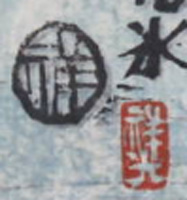 祥 and 祥光 (black circular seal reading Yoshi and red rectangular seal reading Yoshimitsu) | 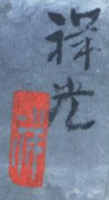 祥光 unread seal |  祥光 with unread rectangular seals |
1 The “Central Art Exhibition” was sponsored by the publisher of the art journal Child bijutsu and was dedicated to introducing the work of young unknown artists.
2 Founded in 1941 by Komuro Suiun 小室翠雲 (1874–1945), founded the Greater East Asia Southern School Institute (大東南宗院 Daitō Nanshūin) with members of the Nanga Appreciation Society and former Japan Nanga Institute. The Greater East Asia Southern School Institute opened exhibitions of nanga painting in 1942 and 1943.
